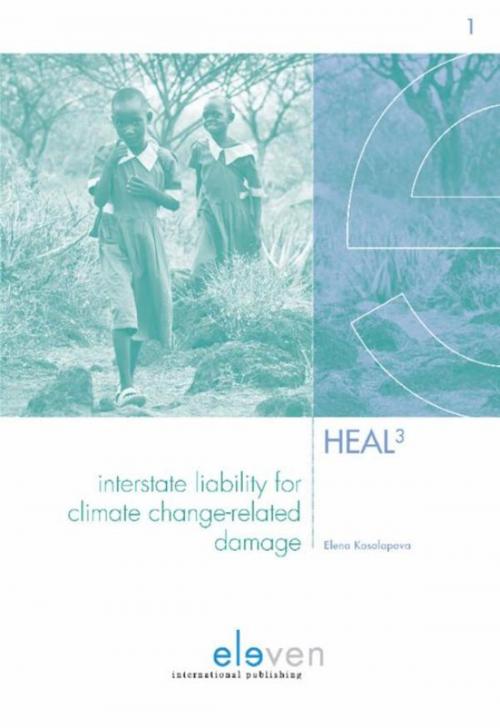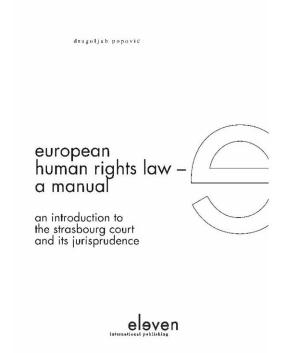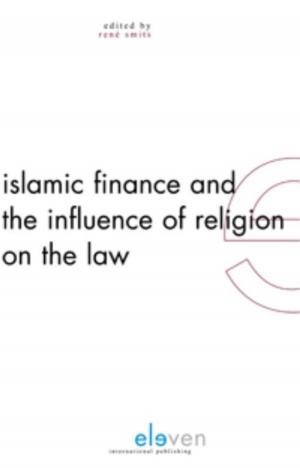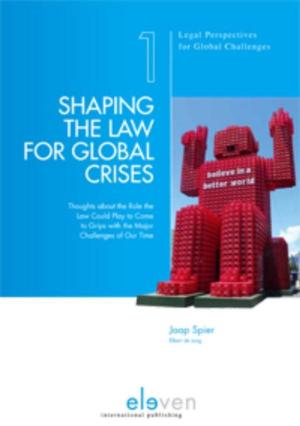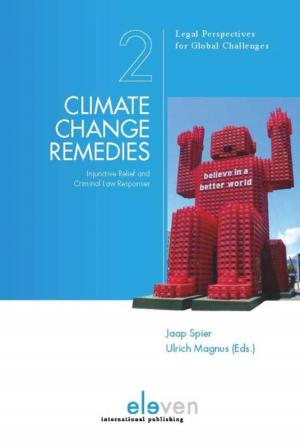Interstate liability for climate change-related damage
Nonfiction, Reference & Language, Education & Teaching| Author: | Elena Kosolapova | ISBN: | 9789460947476 |
| Publisher: | Boom uitgevers Den Haag | Publication: | August 9, 2013 |
| Imprint: | Eleven international publishing | Language: | English |
| Author: | Elena Kosolapova |
| ISBN: | 9789460947476 |
| Publisher: | Boom uitgevers Den Haag |
| Publication: | August 9, 2013 |
| Imprint: | Eleven international publishing |
| Language: | English |
The first commitment period under the 1997 Kyoto Protocol to the UN Framework Convention on Climate Change has expired. Following the adoption of the Doha Amendment in December 2012, it is now clear that, today, the Kyoto Protocol only covers about 15% of global greenhouse gas emissions. It does not impose any legally binding emissions reduction or limitation targets on developing states, and not all industrialized states have undertaken commitments under the second commitment period. The UNFCCC process is due to produce a new climate agreement applicable to all parties in 2015, but it will not be implemented before 2020. Whether the international negotiations will be able to deliver a more ambitious climate regime remains to be seen. Meanwhile, with damaging effects of climate change becoming more apparent each year, the urgency of the global mitigation effort cannot be underestimated. This work explores the possibilities of ensuring that states take adequate mitigation measures, even in the absence of explicit treaty provisions to that effect. Given that the international climate regime does not have a liability mechanism of its own, the author turns to the law of state responsibility to identify options for a potential claimant, such as a small island developing state.
The first commitment period under the 1997 Kyoto Protocol to the UN Framework Convention on Climate Change has expired. Following the adoption of the Doha Amendment in December 2012, it is now clear that, today, the Kyoto Protocol only covers about 15% of global greenhouse gas emissions. It does not impose any legally binding emissions reduction or limitation targets on developing states, and not all industrialized states have undertaken commitments under the second commitment period. The UNFCCC process is due to produce a new climate agreement applicable to all parties in 2015, but it will not be implemented before 2020. Whether the international negotiations will be able to deliver a more ambitious climate regime remains to be seen. Meanwhile, with damaging effects of climate change becoming more apparent each year, the urgency of the global mitigation effort cannot be underestimated. This work explores the possibilities of ensuring that states take adequate mitigation measures, even in the absence of explicit treaty provisions to that effect. Given that the international climate regime does not have a liability mechanism of its own, the author turns to the law of state responsibility to identify options for a potential claimant, such as a small island developing state.
